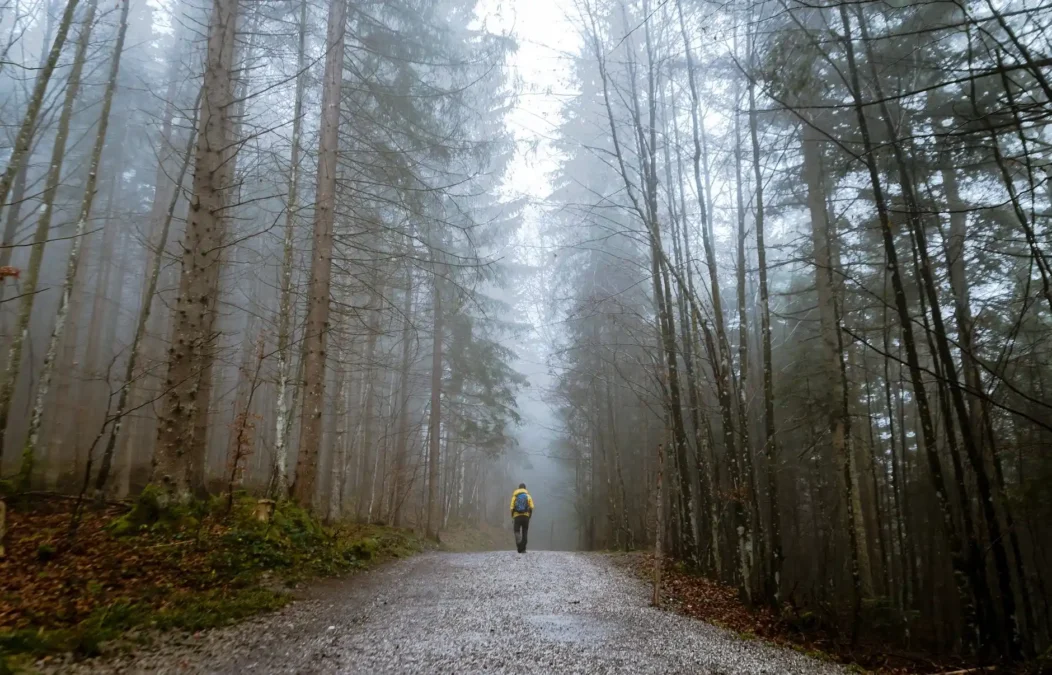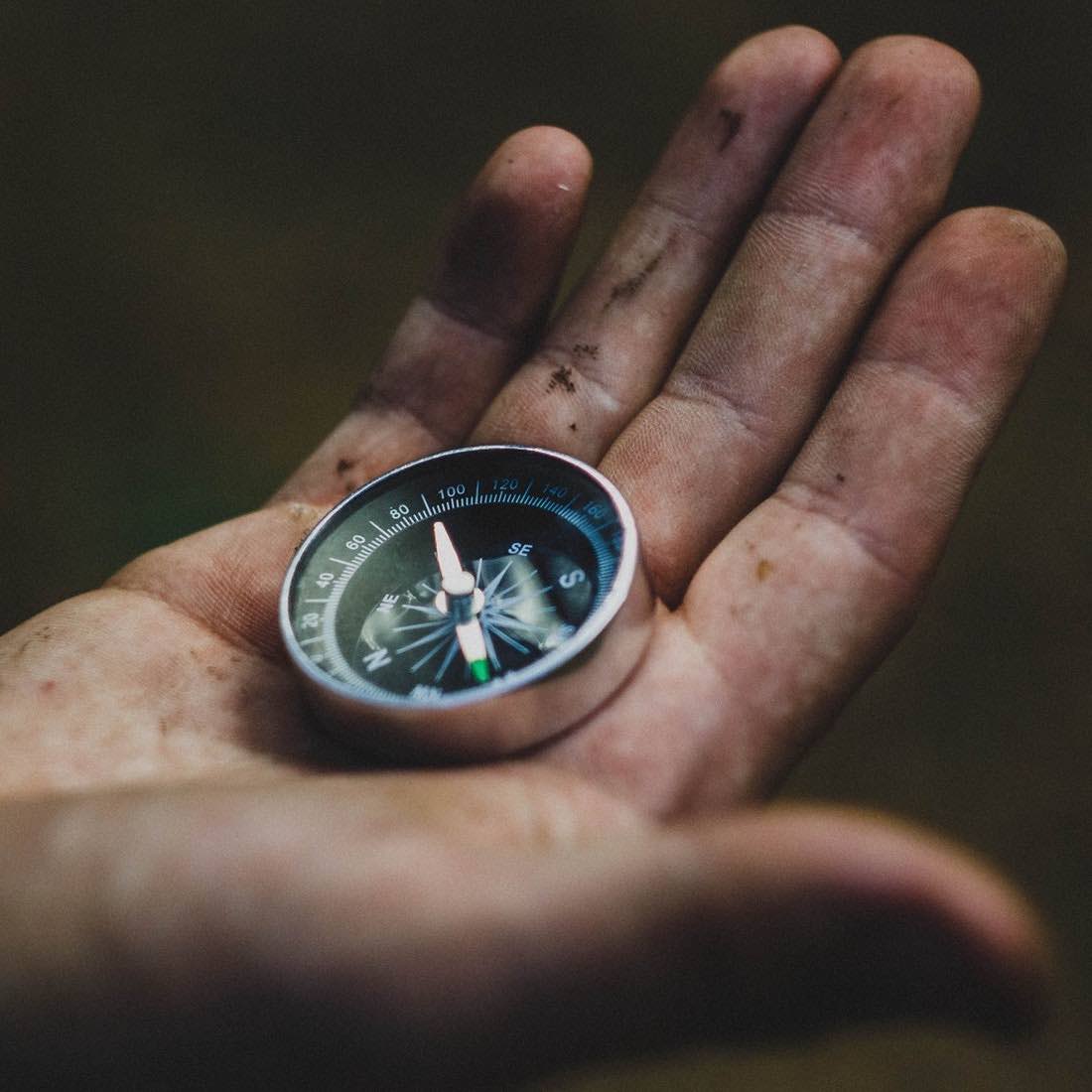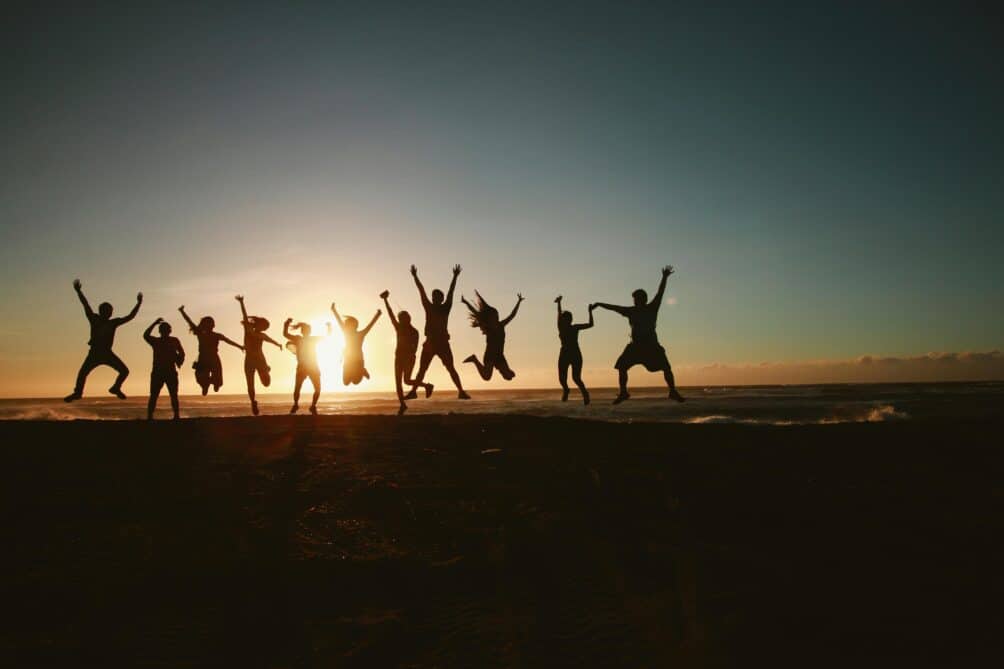Being self-aware requires time. What’s more, to connect thoughtfully, spiritually and emotionally with ourselves (let alone others and our environment) does not always come easily.
Therefore, it is important to find ways we can be more mindful in everyday activities. The exemplar of using mundane activities as spiritual opportunities was probably Brother Lawrence (author of The Practice of the Presence of God) who was able to pray while doing the dishes. I, for one, struggle with achieving this level of mindfulness!
Where I do feel more naturally thoughtful and mindful is outdoors. This is why I find walking a great help for personal and spiritual reflection.
“There is not in the world a kind of life more sweet and delightful, than that of a continual conversation with God; those only can comprehend it who practise and experience it.” Brother Lawrence
Prayerful Pilgrims
The concept of mindful walking can be traced back to religious practices such as pilgrimage. People of various faiths have used pilgrimages to holy sites to be opportunities to examine themselves, as well as demonstrating their spiritual commitment.
There is a growing interest in pilgrimages, as can be seen in the growing popularity of traditional Christian routes such as the Camino de Santiago (in France and Spain), The Pilgrims Way (UK) or the Way of St Francis (Italy).
“We are the Pilgrims, master; we shall go
Always a little further; it may be
Beyond that last blue mountain barred with snow
Across that angry or that glimmering sea”
James Elroy Flecker
These long, multi-day or multi-week walks, allow separation from the busyness of life that can allow quality self-reflection and opportunity for deep spiritual connection. But unfortunately, we don’t all have the opportunity or the time to do a full pilgrimage.
Free Personal Leadership Action Plan
Just sign up here to receive your free copy
Mindful Mazes
One lesser-known, fascinating way to have a mindful walk, is to use a labyrinth. A labyrinth is a physical path or a track you follow, with stop-off points to allow reflection. The inspiration at each station could be a piece of text, an object, some music, or anything else that engages the senses and triggers the imagination. In this process, people can start to connect their ‘being’ to their ‘doing’ and deeply consider vital themes and ideas.
Labyrinths are often designed into properties such as old cathedrals or country houses, the most famous example probably being at Chartres Cathedral in France.
Creating your own mindful walk
Even without a labyrinth on hand, you can create your own mindful walk using the same principles. I have found that in this way one can replicate being more mindful on a walk, no matter where you are.
If you are anything like me, then generally you like to stride out and make progress when you walk. Taking time to pause can be almost physically painful! Therefore, it is a discipline to stop, and use my senses on these types of walk.
If you want to try and do the same, you can try this. Go for a wander, it does not matter where really but you want to be somewhere you can avoid or ignore interruptions. You also want places where you can stop and think without feeling too self-conscious.
Leadership Development: Master the Top Leadership and Life Skills
Better lead in life and work to maximise your success. Sign up and access materials for free!
Questions for Reflection
When you find a place to stop, then look for something that can help you be more mindful. For example, to help you could:
- Pick up or touch a small object such as a pebble or leaf. How does it feel? How was it made, or how did it get there? What role does it play in the larger environment? Answer the same questions for yourself.
- Smell a blossom or fresh-cut grass. What memory does it invoke? What were you like then? How have you changed?
- Listen to the wind or some flowing water. How does that make you feel? Do you feel better or worse? How do you want to feel?
There are of course many other questions you could ask; these are just examples. You can be very specific if you want and use objects to think about an issue that is on your mind. On the other hand, sometimes the best results come from just meditating on the object and letting the thoughts come on their own.
Why not go for a walk now and give it a try?
“The possession of knowledge does not kill the sense of wonder and mystery. There is always more mystery.” Anais Nin




